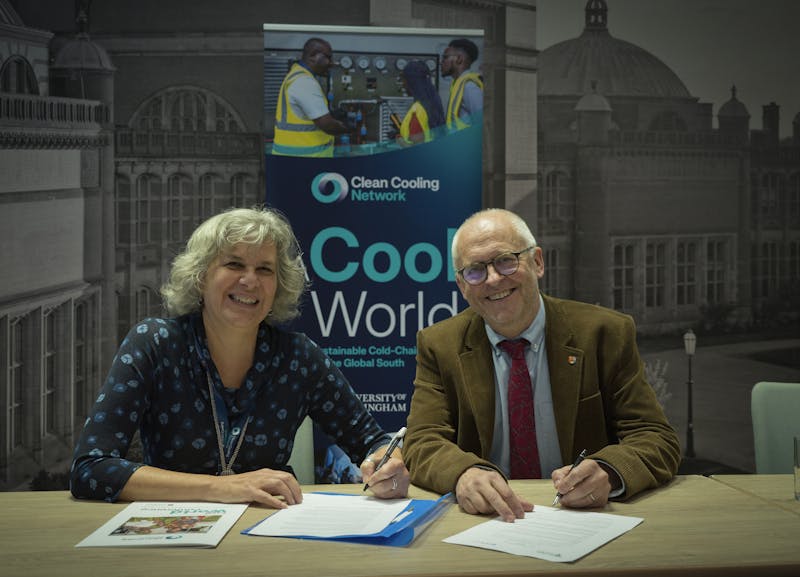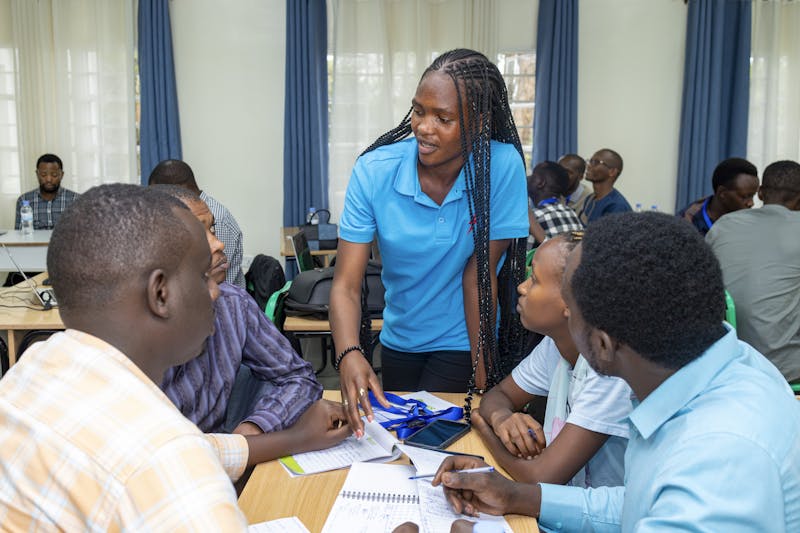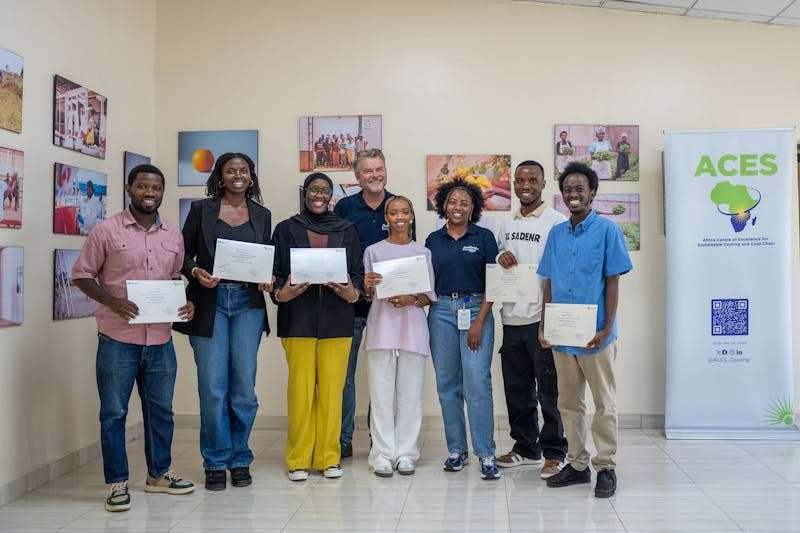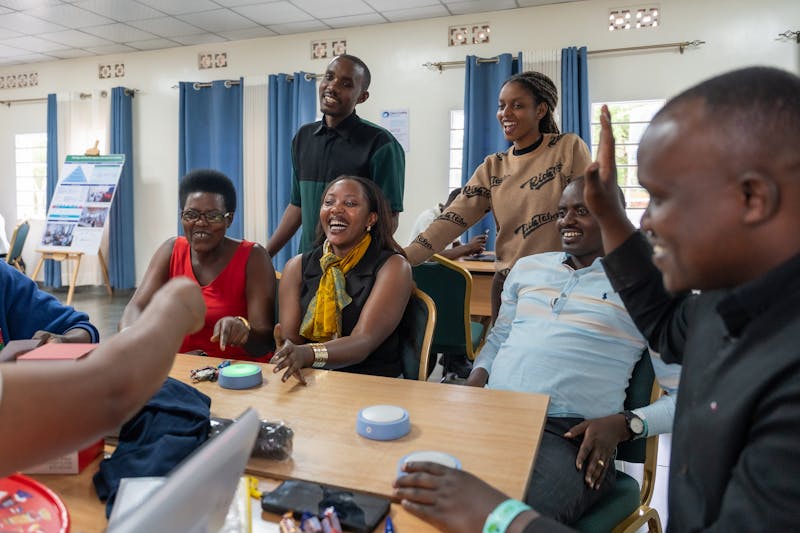Community cold-chain engagement programme
Farming communities are invited to develop and test cold chain solutions
We are inviting smallholder farmer organisations and partnering enterprises that are operating within a 200 km radius around Nairobi to submit an Expression of Interest (EOI) to participate in our next community cold-chain engagement programme.
Kenyan farmers are already reaping the benefits of the cold-chain: on average, they fetch over 50% better prices for their produce than previously, after participating in the initial community engagement programme.

The programme
Through the programme, we will work with up to five communities to develop and test financeable and scalable business models for Community Cooling Hubs.
Phase 1
In Phase 1, we will work on the essential enabling mechanisms, tools, technology selection, business model, governance and operational systems, and targeted training (including Postharvest Management and Health & Safety) necessary to support the community leaders and the wider community to establish a grassroots, community cold-chain ecosystem and integrate cold-chain into their operations. At the end of Phase 1, each community should have their targeted strong business model and ecosystem to develop their own Community Cooling Hub (CCH) and cold-chain.
Phase 2
As a second phase, through the Try Before You Buy concept, a package of cold-chain equipment (static and transport) will be temporarily (e.g., for a season) installed with one or two of the communities, during which they can test out and fine-tune their business model in real conditions with ongoing support and mentoring during this period. The primary wins of the TBYB approach include:
- Farmer communities and households gain first-hand experience of the tangible benefits of cold-chain and value-added activities.
- Communities have the opportunity to develop, test, evaluate and refine their business model and operational details as well as testing and validating their cold-chain needs and opportunities.
- By demonstrating proof-of-concept and practical viability, TBYB builds confidence among investors and financial institutions to provide financing, as well as among farmers and cooperatives to invest in their own fit-for-purpose cold-chain infrastructure and own a CCH.

Background
The programme is developed and run by the Africa Centre of Excellence for Sustainable Cooling and Cold-chain (ACES) with the African Centre for Technology Studies (ACTS), its in-country delivery partner, with funding from the UK Government and industry partners.
ACES was conceived to increase and accelerate the adoption and uptake of resilient, efficient, inclusive and climate-friendly cooling and cold-chain with the triple objective of reducing food and vaccine loss; economically empowering subsistence and smallholder farmers and their communities while mitigating the potential environmental impact of the cold-chain. A key activity is to develop new community-based business models and approaches that better create and equitably deliver shared value (economic and social) and can be a unifying force, helping communities become resilient to future external shocks and stresses.
To extend its impact, ACES was designed with a “Hub and SPOKE” model in strategic locations across the continent to flow the knowledge, training, and support out to other markets. Specifically, these SPOKEs, led by in-country expert partners, house the local and near-to-market training and community support to put into practice and demonstrate real-world solutions. The SPOKE teams develop model communities, which can become the training, evidence base and demonstration centres, cascading the knowledge to other communities further in their regions. The first SPOKE is in Kenya, led by the African Centre for Technology Studies (ACTS), a leading development research think tank committed to leveraging science, technology, and innovation (STI) policies to advance sustainable development across Africa.

Who can apply
Eligible applicants should meet the following criteria:
- Be a Kenya-registered business entity within a 200km radius around Nairobi.
- Operate in the horticultural sector.
- Work with at least 50 smallholder farmers.
- Have audited financial statements.
- Able to demonstrate your business model.
- Ready to co-invest into exploring cold chain technologies for your operations.
- Promote gender equity, social inclusion, equitable and sustainable practices in your operations.
Qualification Threshold
A business qualifies if it can:
- Provide documentary evidence for all the above criteria (with emphasis on those in bold).
- Provide a written commitment to collaborate with ACTS, ACES and partners in the TBYB rollout.
- Submit two referees for verification.
The deadline for applications is 22nd August 2025.

Community cold-chain engagement
Register for our programme:
- Work with at least 50 smallholder farmers?
- Can demonstrate your business model?
- Based within 200kms of Nairobi, KE?







